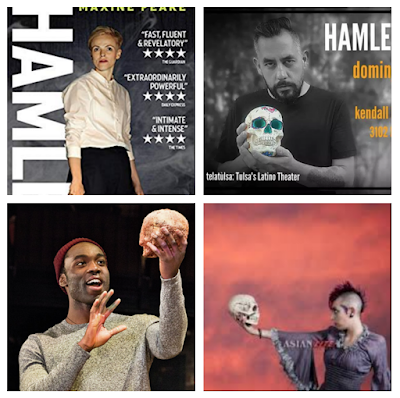HOW IT WENT AT VANDERBILT

My Vanderbilt University presentation/dinner/discussion sponsored by the VU Chaplain's office went very well tonight, a small but good group. Twitter thread summarizing some insights that came together for me as I prepared for the event: https://twitter.com/padrianfried/status/1090478362676600832 It also became more clear to me that while some of the biblical & religious allusions/plot echoes reflect more on Hamlet's movement toward mercy and a merciful providence, others reflect more on the sin & corruption in Denmark & the play's main characters. I was surprised and delighted to find that among those attending were Victor Judge, Assistant Dean for Academic Affairs, Denice Hicks, Artistic Director of the Nashville Shakespeare Festival, and Jim Warren, Co-Founder and former Artistic Director of the American Shakespeare Center in Staunton, VA. Jim is in Nashville as a consultant and teaching an auditioning class in February. [L-R: Victor Judge, De






